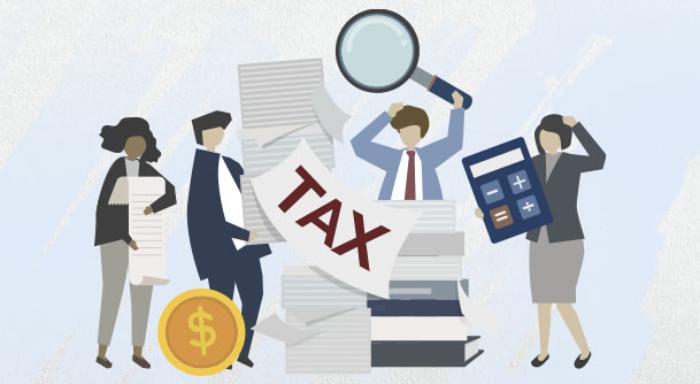Superannuation: A Retirement Plan for Salaried Employees
Blog Title
2901 |
7/9/24 4:59 AM |
Superannuation is a retirement benefit provided by private companies for their long-term employees. Think of it as a company pension plan. It is a completely voluntary addition, and you can even opt into this plan if you want income post-retirement. However, many salaried employees are completely unaware of this option.
If you work in a private company, then you should inquire about your retirement benefits. Find out whether your company offers superannuation and if you’re eligible for it! A company pension plan can help you live a happy and healthy life after retirement. Want to learn more about superannuation? Then here’s a short guide that thoroughly explains the various types of superannuation and their advantages.
How Superannuation Works
Employer Contributions
The first thing to note is that both the employer and the employee contribute to the superannuation fund. A small sum will be regularly invested by your employer, and this sum will be considered a business expense for the company. No deductions will be made from your salary for contributions made by the employer!
Employee Contributions
If you choose to contribute to your superannuation fund, a small part of your salary will be deducted. The maximum amount that can be deducted is 15% of your base salary. Of course, you can choose to contribute a smaller sum if you’re not comfortable with losing 15% of your basic income. Also, remember that this contribution is completely optional! You can choose to not contribute any part of your salary, but that will reduce your overall retirement income.
Your Fund is Transferable!
Started a superannuation fund with one company but now want to move to another job? No issues! Your superannuation fund is transferable. Meaning that the contributions made within one organisation can be moved to your next company as well. Of course, you will have to renegotiate your superannuation fund contributions with the new company, but funds that have already been accumulated will not be lost. You can also opt to completely withdraw your superannuation fund after leaving a company, but this withdrawal will be taxed as income.
Income Post Retirement
Once you retire, you can directly withdraw up to 25% of your superannuation fund. The remaining funds will then be invested into an annuity plan. In you’re unaware, an annuity plan is a pension scheme that provides steady income for the rest of your natural life. This steady income will ensure a happy and financially secure life post-retirement!
Tax Benefits
The 25% you withdraw from your superannuation fund is completely tax exempt. Moreover, your regular income post-retirement will also be eligible for tax deductions. Specific tax benefits for superannuation are explained further ahead.
Types of Superannuation
There are two main types of superannuation plans-
Defined Benefits Plan: This plan provides guaranteed retirement income. This type of superannuation is perfect for those who are risk averse. You know exactly how much money you will get post-retirement. The sum is decided after considering various factors, such as your age of retirement, your salary, and the number of years you worked within a company. Note that this plan can be provided by a company even if no contributions have been made to the superannuation fund. It is a guaranteed benefit given by the company as a token of appreciation for the employee’s years of service.
Defined Contributions Plan: This plan provides non-guaranteed retirement income that depends on the performance and growth of your superannuation fund. To put it simply, the contributions made to your superannuation fund are invested into the market. Hence, all returns you get will depend on fund performance and the current state of the market. This plan is risker for the employee but can potentially offer greater income post-retirement. You will also not be able to determine the exact value of your post-retirement income.
Tax Benefits on Superannuation
Contributions made to superannuation fund are tax deductible as per Section 80C of the Income Tax Act. The maximum amount deductible under this section is ₹1.5 lakhs.
As stated before, the money you withdraw from your superannuation fund right after retirement is completely tax free.
Superannuation is completely tax free if the employee is unable to work due to an injury, disability, critical illness etc. Superannuation funds can be withdrawn without any taxes if the employee passes away.
If you opt for a defined contributions plan, the interest you accrue on your superannuation funds will be tax free.
Types of Annuity Plans Provided Under Superannuation
Superannuation contributions are eventually used to purchase an annuity plan under the employee’s name. This is why it is important to understand the types of annuities offered post-retirement-
Annuity plans can be deferred or immediate.
Under an immediate plan, you start getting income right after your superannuation funds are paid to the annuity provider.
Under deferred plan, your income will be paid out after a predetermined period of time has passed. This time period is decided upon right at the inception of the annuity plan. Your funds grow at a set interest rate during this deferment period.
Your annuity payouts can be monthly, quarterly, half-yearly, or annually.
You can also get an annuity plan with money-back as a death benefit. Under such a plan, your beneficiaries will get back the invested superannuation funds after you pass away.
Finally, you may choose a joint annuity plan. A joint plan will provide steady income for both you and your spouse post-retirement.
Conclusion
Superannuation is a decent savings option for salaried employees. Moreover, the plan’s minute details are handled by your employer themselves. This means that you do not have to stress about managing your funds by yourself. And the best part is that you even get tax benefits for money contributed to your superannuation fund. Build your retirement income through joint contributions with your employer!
Aastha Mestry - Portfolio Manager
An Author and a Full-Time Portfolio Manager, Aastha has 6 years of experience working in the Insurance Industry with businesses globally. With a profound interest in traveling, Aastha also loves to blog in her free time.




